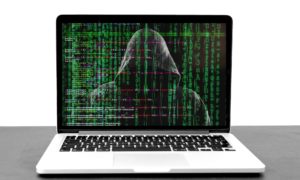Signs That Your Computer May Be Infected with Malware
About 34% of companies who get hit by a breach take a week or longer to regain access to their data and systems.
In the business world, time is money, so such a long recovery time is clearly unacceptable. No accessing data or systems for an entire week? Many businesses will fold completely, angry customers will take their business elsewhere, and it’s a doomsday scenario.
Malware, an umbrella term that denotes many different types of malicious code, includes:
- Viruses
- Ransomware
- Spyware
- Trojans
- Adware
- Key loggers
- And more
Malware also acts over time, so the longer it infects your system, the more damage it causes. Effective malware contains directives to spread as far and wide as it can, seeking out new systems to infect. If it’s not caught and destroyed quickly, one computer can infect an entire network in a day.
Early detection allows you to disconnect infected devices from the network in time to have the device properly cleaned by a pro. Put mobile devices into airplane mode to keep them from transmitting more sensitive data.
Watch for these core warning signs of malware infection so you can act quickly enough to reduce your risk.
Unknown Popups on Your Screen
Bad always wants to look good. That’s how it gets past our defenses. Many malware programs mimic
Should a “renew your antivirus” or “upgrade your warranty” popup show up, don’t just click on it. If it’s your personal computer, you should remember installing the program. On a business computer, it’s IT’s job anyway. When that popup doesn’t quite make sense, it’s probably that your PC is infected with adware or another type of malware.
Recent Sluggish Behavior
Having too many browser tabs open or running a memory-intensive program often slows computers down. That being said, most people know their own computer and what specific circumstances it slows down in.
If your computer is sluggish for no apparent reason, the processor may be trying to run an infectious program. For example, a simple text editor like Notepad takes very little processing power. It shouldn’t freeze your computer all by itself.
Whenever malware runs in the background, it eats up system resources causing sluggish behavior.
Applications Crash Repeatedly
Applications don’t just crash out of the blue. There is always a reason. It could be that the software is faulty, an update meshed badly, or something else interfered with that application’s files.
Should you suddenly experience apps crashing, requiring you to restart the app or reboot your system, it’s another neon sign that a trojan, virus, or other malicious code wiggled in.
Your Browser Home Page Changed Suddenly
When you open your browser and land on a homepage that is not what you picked, get your PC scanned for malware immediately. Redirecting a home page is one of the most frequent and annoying ploys of some types of malware.
The malware infected your system and changed the default browser home page. That new page is probably not good for your cyberhealth, being filled with popup ads or other phishing attempts.
You can set your homepage back in settings all you like. The infectious program will just keep changing it back. Removing the malware offers the only real fix.
Surprise Reboots
One of the most frustrating traits of some kinds of malware is to make the system reboot randomly with no warning at all.
If you listen carefully outside an office infected with this kind of malware, you can hear the frustrated, despairing shrieks of team members who just watched all their work vanish. You then may hear the sound of keyboards being destroyed as people lose their tempers with being unable to accomplish anything at all.
What’s going on? The malicious program changes core system files behind the scenes. When those files are corrupted, the operating system itself becomes unstable and reboots repeatedly to try to function.
Where Did Hard Drive Space Go?
You have a huge hard drive. You KNOW you have a huge hard drive. There’s no way you saved enough files to fill it up, but now you can’t save anything because your hard drive claims to be full.
You didn’t fill it up. Malware crammed new files into your system without your permission. Malicious programs will often copy files or introduce a lot of new files into your system.
It would be nice if they were marked “malware”. Unfortunately, the people who wrote these programs aren’t nice. The dangerous processes will always be masked by a generic-sounding name that’s easily mistaken for a normal system file.
You Find Corrupted Files
Files can become corrupt for all kinds of reasons, but malware corrupts them most often. Considering that malicious programs are the most common cause, corrupted files always serve as a malware red flag.
Regardless of the end result, a thorough malware scan is always in order when files come up corrupted.
PC “Processing Sounds” When There Shouldn’t Be
We’ve all joked about our computer “thinking” when we hear whirring sounds during memory intensive processes. It’s usually either the system fan or the hard drive whirring.
The system fan runs to cool the processor and case during high activity. Most hard drives are disks that are stored in a hard shell, and those disks whirl during read/write procedures.
If you’re not doing anything difficult with your computer, why is it making its “intensely processing” sounds? Malware’s usually pretty intensive in processing and memory demands. You should get it checked out.
Why Is This Published By A Business Phone Company?
Here at NoContractVoIP, we believe that your success is our success. To get the latest helpful content delivered to your inbox every month, subscribe to our newsletter here.
Looking for the finest stress-free custom business telephone systems? Contact us or call today at 866-550-0005!
